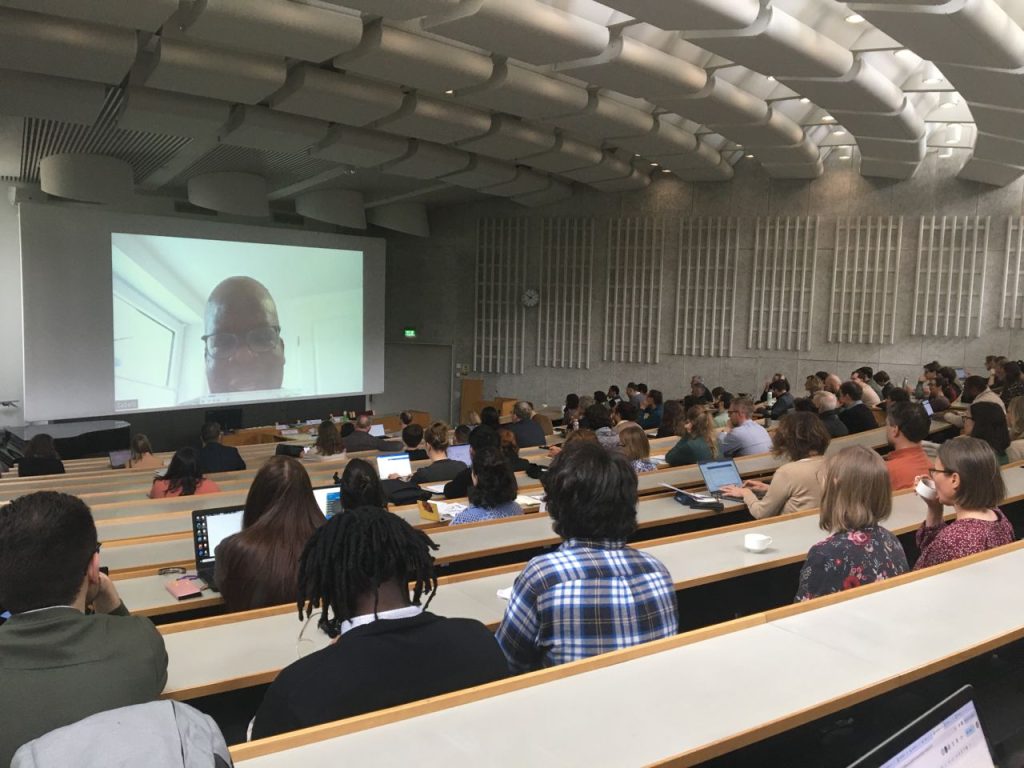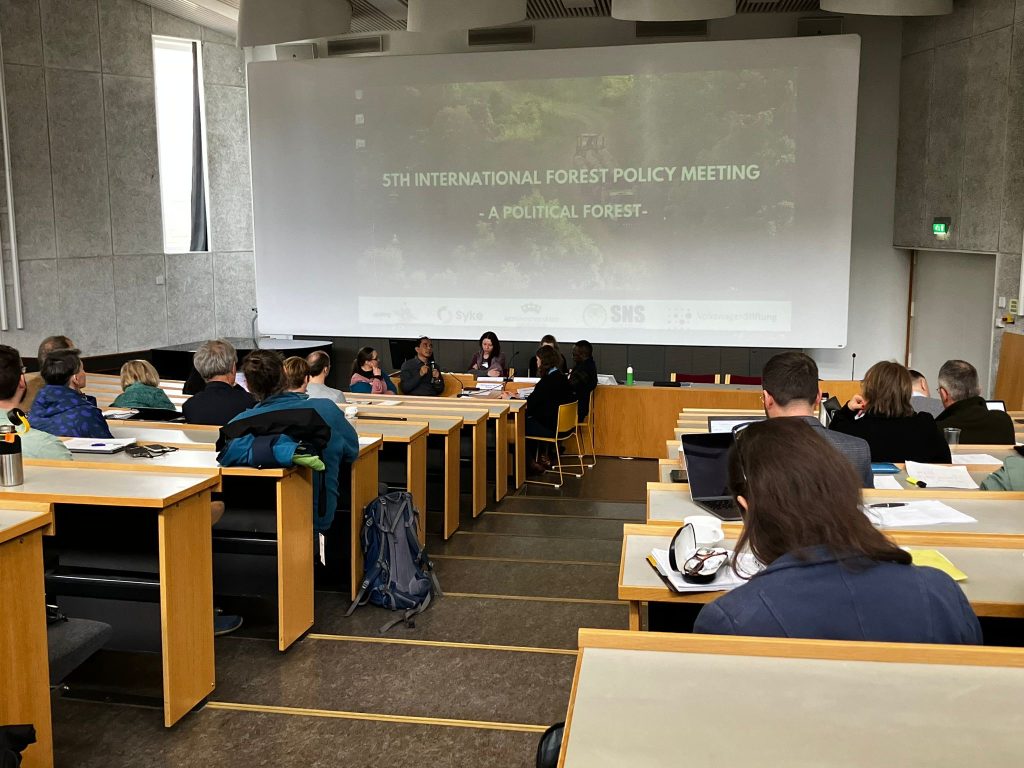Note: Click here to read the blog by the International Forest Policy Research Group at University of Helsinki, who hosted IFPM5
Sometime before I attended the 5th International Forest Policy Meeting (IFPM5) at University of Helsinki in April, we as researchers at FairFrontiers held a mini workshop to reflect and discuss our positionalities in the project. This exercise was meaningful, in that it prompted me to critically reflect on what I consider as “knowledge” or “fact,” and the process I go through when choosing what information to consume, validate or dismiss. I am increasingly aware of how research today, regardless of its rigor or approval by other scientists, can still be dismissed and ignored, often for political reasons. Conversely, research that promote influential ideas contributing to dominant narratives which serve the interests of those in power are often still taught and cited in academia. This is not a recent phenomenon—we all know how “science” was used by colonial empires to justify their exploitation of people and natural resources.

I kept going back to this thought during IFPM5, which on its first day opened with a keynote speech by Prof. Dr. Sabelo J. Ndlovu-Gatsheni, Chair of Epistemologies of the Global South at University Bayreuth. He introduced important concepts and ideas for why decoloniality is an imperative, and how education and research can be decolonial in practice, such as the importance of identifying “silences,” which are more often than not a systematic and intentional strategy to exclude certain voices and forms of knowledge. Though there are many possible definitions for decoloniality, we need to be critical of “decolonial” efforts that in practice are not challenging the status quo or advocating for transformative change. In other words, be aware that the colonial still exists, albeit in less obvious forms or narratives, including in our subconscious minds, having gone through education systems that are very much Western/Global North-centric. One researcher surmised that “we are colonizers too,” and while that was probably meant to be a blunt (and hopefully bad) joke, that person was referring to academia’s complicit role in protecting the interests of powerful actors, both in the past and present. Another researcher gave an articulate comment on how instead of examining the larger drivers of deforestation such as plantations and mining concessions, many scientific data and policies are suggesting birth control to local populations as ‘solutions’—showing how Malthusian ideas of population growth and resource scarcity have become so dominant and entrenched, even though such narratives are harmful and incorrect*. Meanwhile, the panelists for the keynote session talked concerningly about the growing trend of cuts in research funds and censorship in their fields, which gave me a sense of unease. While these slightly pessimistic thoughts initially loomed over me, the presentations and discussions I heard during those three days gave me a renewed sense of excitement for the kind of research that is going on in the field of international forest policy.
In the first half of our panel (session 4.4a), our moderator Moira Moeliono asked what—if there are any—are the alternatives to this business-as-usual, capitalistic ‘growth’. Mairon Bastos Lima, who presented in this session, answered that while there is a need for radical change in order to move away from the institutional, financial and cultural lock-ins that make it difficult to implement alternatives, these solutions do not always have to be made from scratch. Ideas on what alternative forms of development looks like can be found in existing land-use and farming practices on the fringes of dominant plantation systems, although the people behind these practices are often ones that have been historically marginalised. Research then can play a role in looking beyond technocratic solutions, and recognising and including other forms of knowledge that might offer better answers to how we should manage and live with the environment. I thought of adat, the customary laws that indigenous communities in Sabah and Sarawak still practice to this day, and their deep relations with their land.
We also discussed in our session how while we may not be able to always control the external circumstances that pose financial and institutional challenges to doing research, we should stay alert in identifying spaces where critical social science can be informative, especially on issues that governments, industries or other actors are not addressing or examining closely. For example, acacia and eucalyptus plantations in Sabah are being portrayed as a financially viable solution for sustainable forest management, but are in fact driving the privatisation of customary lands and displacing the communities there. Behind these projects are financial and material transactions between international actors that are opaque and complicated, but research approaches like telecoupling and critical social science can uncover and examine why these projects are emerging, and for whom. Critical social science approaches are meant to disrupt the status quo and examine inequities. The critical social scientists in this session discussed their motivations, as well as the various risks involved in challenging power and bringing to the forefront the perspectives of those impacted who are not represented in policies, media and other public spaces.

Listening to these intense discussions, it would be a lie to say that I wasn’t intimidated at the beginning (this was my first conference), but I learned about the work of many researchers who are, in many ways, challenging the colonial, through their choice of topic and case study, their choice of who they do research with, whose work they refer to, but also who or what they are critiquing. In between sessions, I talked to a couple of researchers, and one common challenge they mentioned was how to communicate informative research and some of these decolonial ideas to the broader public, outside of academia. This was also a question I am recently thinking about. I left Helsinki a week later with a list of papers I wanted to read, feeling motivated and inspired for my upcoming research projects.
*For those interested in reading about the broader implications and legacy of Malthus’ work under British colonial expansion, click here to read The Invention of Scarcity by Deborah Valenze
Written by Ayami Kan
